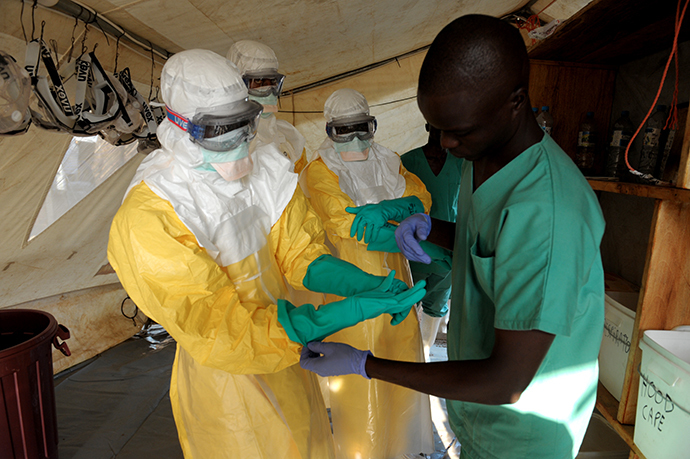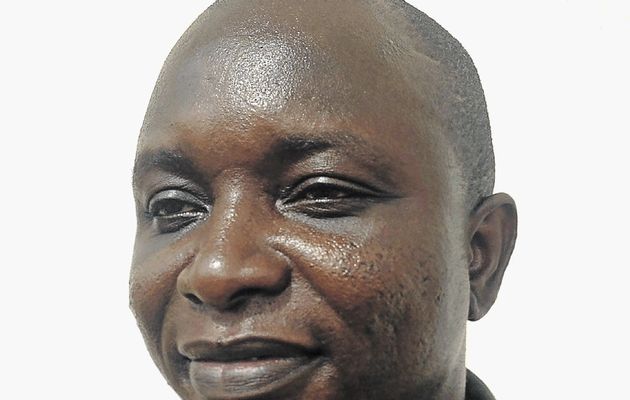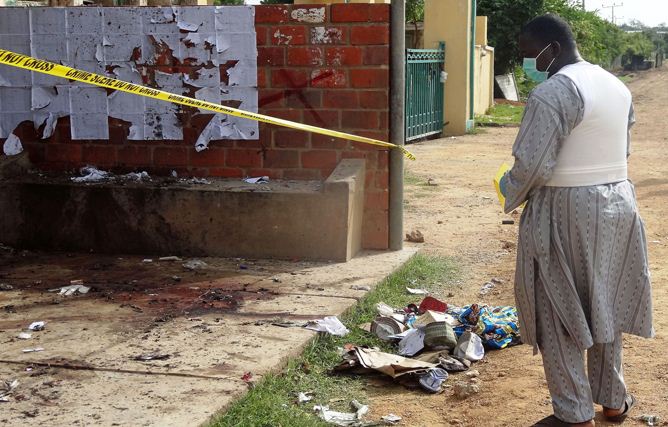Nigeria and other west African countries are on alert as key UK officials meet to consider action on the spread of Ebola virus.
There are fears that some measures to be taken by the British government may have implications for air travels between west Africa and the UK.
Several airlines have already stopped flights to affected countries as part of measures to curb the spread of the virus which appeared in Guinea in February and has now recorded its highest number of fatalities ever.
So far, cases have been recorded in Guinea, Liberia and Sierra Leone ─ while a foreigner on a trip to Nigeria died from the virus on Friday, July 25, at a Lagos hospital.
Advertisement
Nigerian government has since moved to check the possibility of the virus having a foothold in the country, mounting a series of border checks as part of its response.
British foreign secretary Philip Hammond told the BBC on Wednesday that the virus, which has now killed more than 670 people, “is a threat to the UK”.
An emergency COBRA meeting will be chaired by Hammond to discuss the crisis and map the appropriate response.
Advertisement
COBRA is acronym for “Cabinet Office Briefing Room A” ─ defined in Wikipedia as “the location for a type of crisis response committee set up to coordinate the actions of bodies within the government of the United Kingdom in response to instances of national or regional crisis, or during events abroad with major implications for the UK”.
Hammond said government was viewing Ebola “very seriously” even though no Britons had been affected so far and there are no cases in the UK.
UK doctors have already received an alert from the Public Health England to be aware of Ebola’s symptoms.
Hammond told BBC government was “absolutely focused” on tackling the Ebola threat, including looking at “whether there are precautions we need to take ─ either in the UK or to protect our nationals in the area abroad”.
Advertisement
Government’s chief scientific adviser Sir Mark Walport told the Daily Telegraph Ebola was a threat because of how “interconnected” the world was now.
Mark said: “The most dangerous infections of humans have always been those which have emerged from other species. They are a potential major threat to us.
“Emerging infectious disease is a global grand challenge. We were lucky with SARS. But we have to do the best horizon scanning.
“We have to think about risk and managing risk appropriately.”
Advertisement
Dr Brian McCloskey, director of global health at Public Health England, said the outbreak was “clearly not yet under control” in west Africa.
He said: “The risk to UK travellers and people working in [affected countries] of contracting Ebola is very low but we have alerted UK medical practitioners about the situation in West Africa and requested they remain vigilant for unexplained illness in those who have visited the affected area.
Advertisement
“It is important to stress that no cases of imported Ebola have ever been reported in the UK and the risk of a traveller going to West Africa and contracting Ebola remains very low since Ebola is transmitted by direct contact with the blood or bodily fluids of an infected person.”
Advertisement
Add a comment






